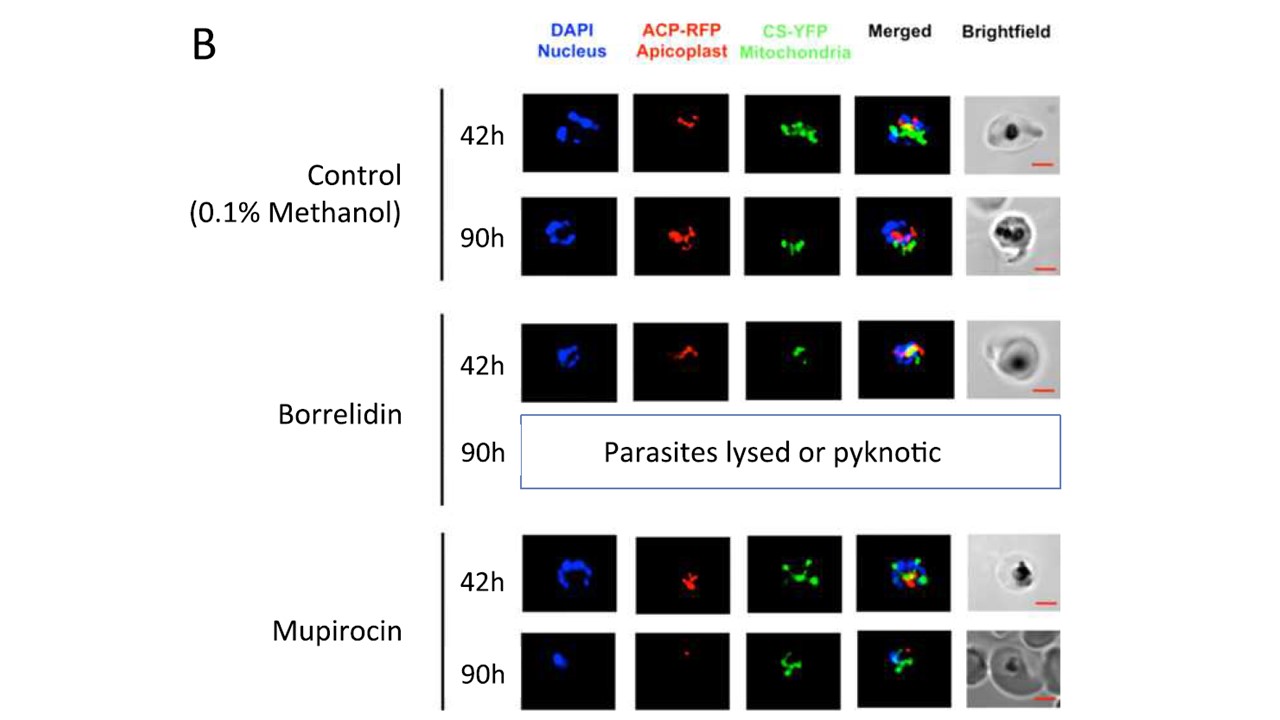Response of parasites to the aminoacyl-tRNA synthetase inhibitors borrelidin and mupirocin. (B) Apicoplast division is inhibited by mupirocin but borrelidin leads to global cellular arrest. Plasmodium endosymbiotic organelles were visualised using double-transfected parasites with red fluorescent protein-labelled apicoplasts and yellow fluorescent protein-labelled mitochondria (D10 acyl carrier protein-RFP, citrate synthetase-YFP) .In the schizont stage of untreated parasites both the apicoplast and mitochondria elongate, branch and divide to segregate into daughter merozoites. In mupirocin-treated parasites (200 nM mupirocin), both organelles divided and segregated normally in the first round of treatment (42 h observation). However, after reinvading, parasites initially appeared normal, but apicoplasts did not elongate or branch, and no daughter merozoites were formed (90 h observation). Mitochondrial elongation and branching proceeded normally until schizont stages. In borrelidin-treated parasites, cells quickly (within 42 h) appeared shrunken and pyknotic, although no specific organellar defects were seen. Parasites did not proceed to make daughter merozoites. Some parasites persisted for another 48 h, but many were apparently lysed or pyknotic. Scale bar = 4 mm.
Jackson KE, Pham JS, Kwek M, De Silva NS, Allen SM, Goodman CD, McFadden GI, Ribas de Pouplana L, Ralph SA. Dual targeting of aminoacyl-tRNA synthetases to the apicoplast and cytosol in Plasmodium falciparum. Int J Parasitol. 2012 42(2):177-86.
Other associated proteins
| PFID | Formal Annotation |
|---|---|
| PF3D7_0208500 | acyl carrier protein |
